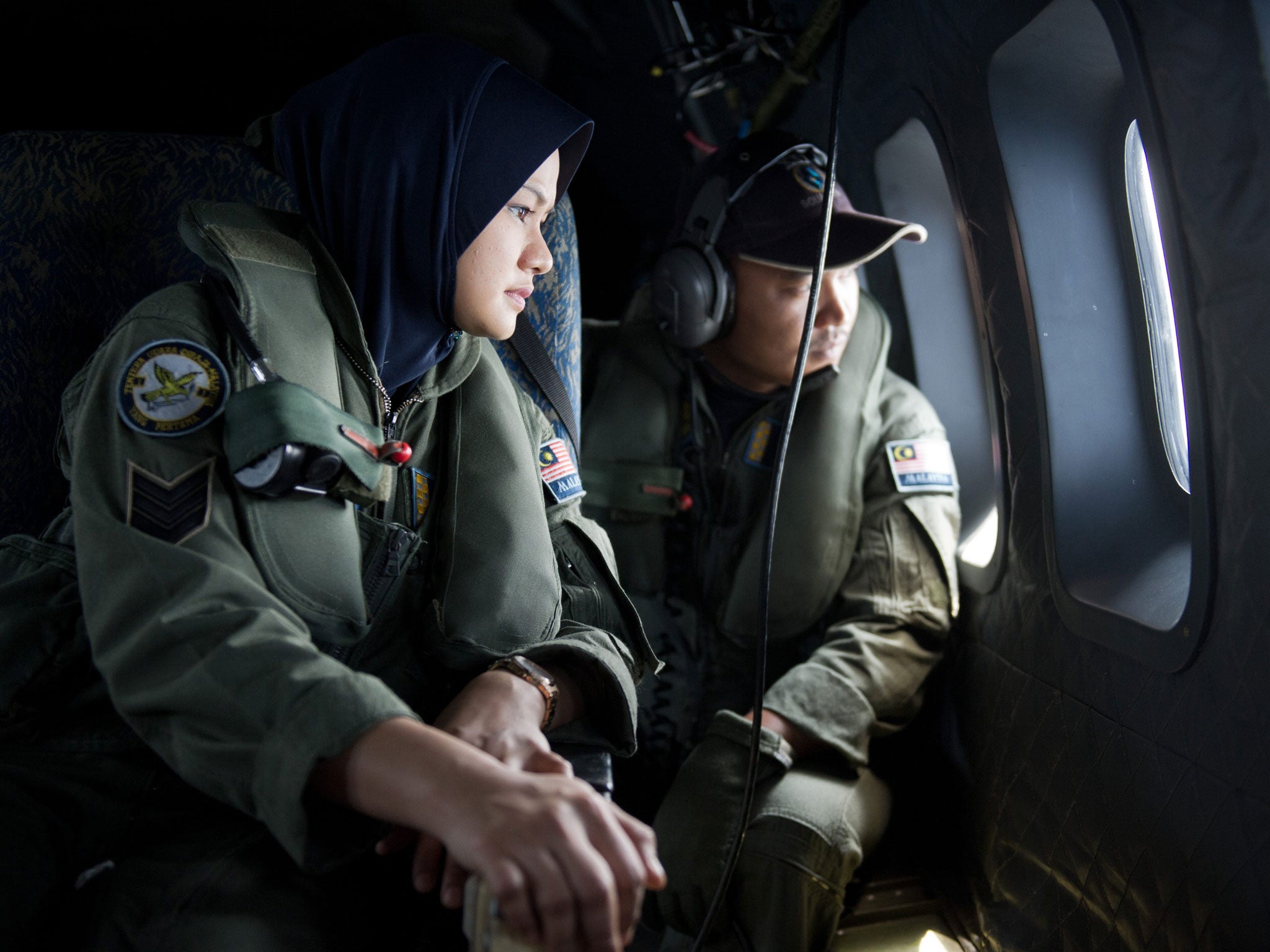Missing Malaysia Airlines flight MH370: Hunt for missing jet hampered by lack of international cooperation
Background checks on all 154 Chinese nationals did not uncover any evidence suggesting they were involved in hijacking or an act of terrorism, officials say

Fears are growing that the hunt for missing Flight MH370 is being hampered by failures by many of the countries involved to work together on the search.
10 days after the aircraft disappeared, Thailand's military said yesterday that its radar detected a plane that may have been the Malaysia Airlines jet, minutes after its communications went down, but did not share the data earlier because officials “did not pay any attention to it” and were not specifically asked for it.
Air Vice Marshal Montol Suchookorn admitted Thai authorities could not be sure the aircraft picked up by the radar was the missing plane carrying 239 passengers and crew, but the new information raised further questions about the effectiveness of search efforts, which are being coordinated by Malaysian authorities.
Flight MH370 took off from Kuala Lumpur at 12.40am Malaysian time on 8 March, destination Beijing. The plane’s transponder, which allows air traffic controllers to identify and track it, stopped communicating at 1.20am.
At 1.28am, Thai military radar “was able to detect a signal, which was not a normal signal, of a plane flying in the direction opposite from the MH370 plane,” back toward Kuala Lumpur, Montol said. The plane later turned right, towards the Malacca strait.
When asked why it took so long to release the information, Montol said "…we did not pay any attention to it. The Royal Thai Air Force only looks after any threats against our country," adding that Malaysia's initial request for information in the early days of the search was not specific.
Relatives desperate for information on the fate of loved ones on board the missing jet have reportedly threatened to go on hunger strike if the authorities in Kuala Lumpur are not more forthcoming.
“What we want is the truth,” one woman said, after a meeting with Malaysian authorities, according to the BBC. “Don’t let the passengers become the victims of a political fight.”
Speaking yesterday, the official leading the hunt for missing Flight MH370 dismissed criticism voiced by officials in China and the US that Malaysia had itself been reluctant to share information with foreign governments. He said such was the desire to find the plane, that Malaysia had shared information with other countries that could potentially weaken its national security.
“The entire search area is now 2.24 million square nautical miles. This is an enormous search area,” said Malaysia’s Transport Minister, Hishammuddin Hussein. “And it is something that Malaysia cannot possibly search on its own. I am therefore very pleased that so many countries have come forward to offer assistance and support to the search and rescue operation.”
The search now covers more than 2.2 million nautical square miles – an area the size of Australia. At least 25 countries are involved in the operation. Yet there still remains not a single physical trace of the plane or the people who boarded eleven days ago.
Officials were last night still searching along two arcs that cut north and south through swathes of Asia. It is believed that it was from somewhere along this line that the final “ping” satellite signal from the plane was sent. Amid speculation about which way the plane might have turned, officials say both areas remain equally important to investigators.
Mr Hussein spoke as investigators continued to focus attention on both the passengers and crew of the plane, searching for any clues as to who may have been responsible for diverting the jet off course. Over the weekend, officials said they believed the actions of the plane as it veered from its planned route and turned sharply West, were consistent with the intentional action of someone onboard.
Mr Hussein said Aust ralia, Japan, New Zealand and South Korea were sending additional hardware to search in the massive southern Indian ocean. He said he had also spoken with US defence secretary Chuck Hagel, given the US’s search and rescue capabilities. He said he had also spoken with his counterparts in China, which had also vowed to help search in China itself and along the so-called southern corridor.
Meanwhile, checks into the background of the more than 150 Chinese citizens on board the missing Malaysia Airlines jetliner have uncovered no links to terrorism, the Chinese ambassador in Kuala Lumpur said.
The remarks will dampen speculation that Uighur Muslim separatists in far western Xinjiang province might have been involved with the disappearance of the jet.
At least 26 countries are now assisting in the search for the plane, intensifying challenges of co-ordinating ground, sea and aerial efforts.
Additional reporting by agencies
Join our commenting forum
Join thought-provoking conversations, follow other Independent readers and see their replies
Comments